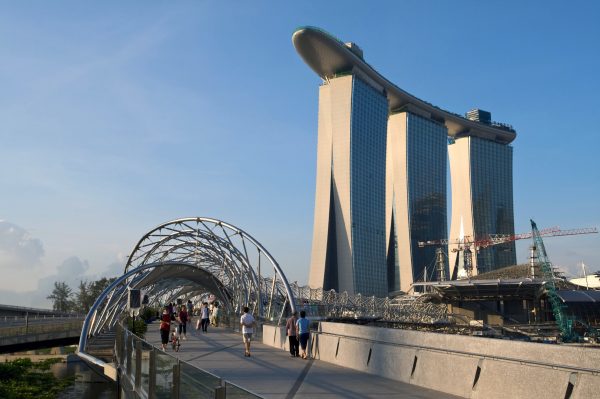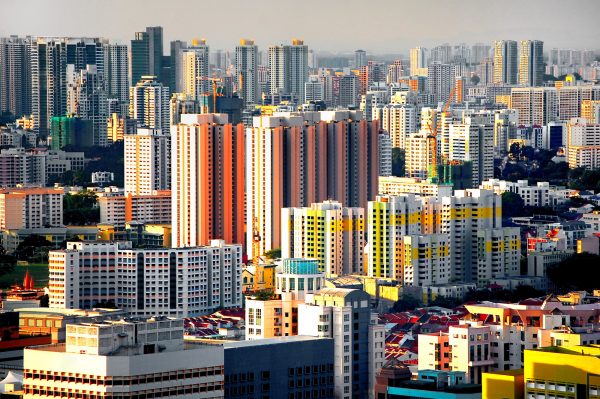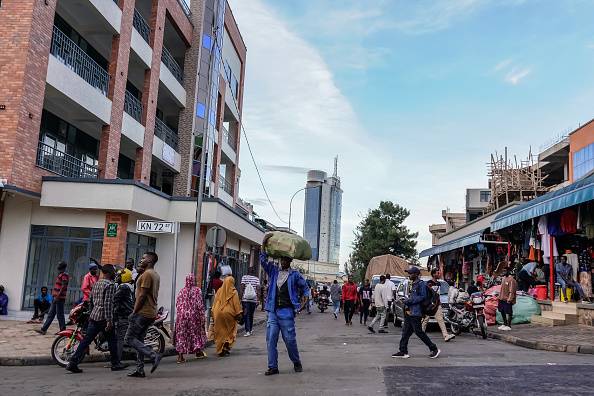Thailand’s cabinet has approved a draft law that would legalize casino gambling, with the aim of delivering a jolt to the country’s economically pivotal tourism sector, Prime Minister Paetongtarn Shinawatra announced yesterday.
The Entertainment Complex Bill, which will now be passed to Parliament for deliberation, would permit casinos to be established within large-scale “integrated resorts.” These would also house theme parks, water parks, hotels, shopping malls, and venues for local sports, including Muay Thai boxing and cockfights, which collectively would attract large numbers of visitors.
Under the Gambling Act 1935, gambling in Thailand is currently tightly restricted. The only forms available are state-run horse racing and an official lottery, but illicit betting is nonetheless widespread.
Paetongtarn told reporters yesterday that the new bill would help reduce illegal gambling, while capturing more value for the Thai state.
“The objectives are to increase revenue, support investment in Thailand, and solve illegal gambling,” Paetongtarn told reporters yesterday, according to Channel News Asia. “Legalization will protect the public and would also generate more state revenue.”
The Entertainment Complex Bill would see Thailand follow the example of neighbors including Cambodia, Singapore, the Philippines, and Laos, which have legalized the establishment of large casino complexes.
If the bill is passed – the government has previously stated that this could happen by mid-2025 – the government is expected to grant five casino licenses to start. These include two in the capital of Bangkok and one each in Pattaya, Chiang Mai, and Phuket.
The bill is just one of a number of initiatives that the Thai government has introduced in order to support its crucial tourism sector, which by one estimate counts for around 12 percent of the country’s gross domestic product and nearly a fifth of its jobs. So far, it has reduced visa requirements for visitors from many nations, doubled the amount of time they can stay in Thailand from 30 to 60 days, and introduced long-term digital nomad visas; it also announced extended public holidays for 2025 in a bid to stimulate domestic tourism, and taken steps to reduce bottlenecks at major airports. As a result of these efforts, more than 35 million people visited Thailand last year, not far short of the record of 40 million set in 2019, the last full year before the COVID-19 pandemic.
If the Entertainment Complex Bill is passed, the government expects it to increase foreign visitor numbers by between 5 and 10 percent and tourism revenue by about 120 billion baht to 220 billion baht ($3.45 billion to $6.32 billion), Deputy Finance Minister Julapun Amornvivat told reporters yesterday. He also said that about 9,000 to 15,000 new jobs would be created.
Paetongtarn’s government is not the first to have discussed the legalization of gambling, but none has actually taken the step of doing so, in large part due to opposition from Thai conservatives.
There is also evidence that the Thai public is highly ambivalent about legalization. In a report last year, Reuters cited a 2021 opinion poll in which 47 percent of respondents said they opposed the legalization of gambling over concerns about crime and morality, compared to 21 percent who were supportive and 18 percent were partially in agreement with the idea.
Advocates of the plan, including Paetongtarn’s father, former Prime Minister Thaksin Shinawatra, argue that the country is already home to large amounts of illegal and unregulated gambling activities. Large casinos also exist just over the country’s borders with Cambodia, Laos, and Myanmar, which cater to Thai and Chinese customers. As a result, licensing the establishment of casinos within large entertainment complexes will allow the government to control and regulate where and in what circumstances gambling can take place. Under the proposed bill, gaming areas could only make up a maximum of 5 percent of the total area of each entertainment complex.
Nonetheless, the law is unlikely to enjoy a frictionless passage. Thanakorn Komkrit, the secretary general of the Stop Gambling Foundation (SGF), which has organized protests against the bill, has previously expressed concerns that the details of the current draft law “diverge significantly” from Singapore’s Integrated Resorts model, watering down requirements that entertainment complexes feature a wide range of non-gambling-related entertainments. The SGF has also accused the government of looking for a quick economic fix without considering the consequences.
It has an influential ally in the Council of State, a body that advises the Thai government. The Council has announced that it will oppose the Entertainment Complex Bill, claiming that it breaches government policy and does not adequately address the issue of illegal gambling. Indeed, in mainland Southeast Asia casinos have been strongly associated with organized criminal activities, including online scamming operations.
Given how badly Thailand handed its landmark legalization of cannabis, these critics might have a point. With tourism numbers now heading in the right direction, there is no reason to rush, and ample reason to tread carefully, on the question of gambling.





















Discussion about this post